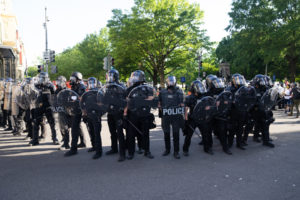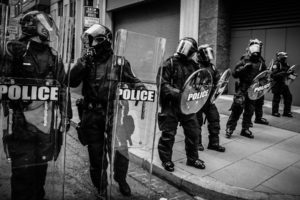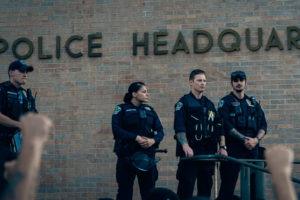 If you or someone you know suspects that you have not been treated lawfully by police officers during an encounter, you may be wondering what to do next. Police brutality takes many forms, and it is important that you understand the types of brutality that officers can be held accountable for. This helps to keep you safe and ensure that law enforcement perform their jobs as intended.
If you or someone you know suspects that you have not been treated lawfully by police officers during an encounter, you may be wondering what to do next. Police brutality takes many forms, and it is important that you understand the types of brutality that officers can be held accountable for. This helps to keep you safe and ensure that law enforcement perform their jobs as intended.
Experiencing Police Brutality
Anyone can experience police brutality; a person does not necessarily have to present as threatening or be guilty of a crime. Brutality from a law enforcement officer can occur at any time that an officer and a member of the public are in contact, and determining whether you have been a victim comes down to whether the officer first exhausted all reasonable options before progressing to excessive force. Force, in this context, is not restricted to physical actions.
The Types Of Police Brutality
Police brutality does not always have to mean situations in which a law enforcement officer uses extreme physical force or violence, although that is one possibility. Experiencing police brutality can take many forms. A police officer’s words, physical presence, or use of tools can all constitute police brutality if they are used without need or to achieve an illegal consequence.
Use Of Excessive Force
Excessive force is one of the most common situations in which you can prove that officers have committed police brutality. This may involve an officer becoming physically violent with an individual who is fully cooperating or otherwise opting to use more physical or verbal force than is necessary to diffuse the situation. Police officers are required to begin their contact with the least aggressive methods first, only escalating when the individual they are in contact with is not cooperating in resolving the situation. Use of tasers, chokeholds, and batons are not first step solutions.
Unlawful Arrest Or Detainment
 Police officers must have probable cause or a warrant in order to arrest or detain you. If you have been arrested or detained for no reason, you may have a case for police brutality. Being in contact with police officers can have significant impacts on your physical wellbeing, safety, and reputation, and officers who have detained you without cause may be guilty of brutality even if they have not become physically aggressive.
Police officers must have probable cause or a warrant in order to arrest or detain you. If you have been arrested or detained for no reason, you may have a case for police brutality. Being in contact with police officers can have significant impacts on your physical wellbeing, safety, and reputation, and officers who have detained you without cause may be guilty of brutality even if they have not become physically aggressive.
Wrongful Death By Law Official
Another common cause for police brutality charges is when a law enforcement officer is guilty of the wrongful death of an individual. If a situation did not call for the use of deadly force and the officer utilized deadly force anyway, there is a strong case for police brutality. The use of deadly force to resolve a situation is subject to strict guidelines: the use of such force must be the only means remaining to prevent the escape of the individual, and the person must be a significant and tangible threat to officers or the public. If both of these criteria are not met, the use of deadly force is prohibited.
Wrongful Confessions
Law enforcement officers do not always rely on physical actions to control a situation. If you are coerced into giving a confession or pleading guilty due to an officer’s verbal threats, physical presence, or other actions, the officer may be guilty of police brutality. You cannot legally be coerced into confessing, and officers may not use physical force, trickery, torture, or deceit to fool you into confessing. If you do not feel that officers gave you any choice but to confess or plead guilty, you may be a victim of police brutality.
Work With A Professional Attorney
 If you or someone you know suspects that they have had inappropriate contact with law enforcement officers, the most important thing to do first is to document everything that you remember and gather as much evidence of what happened as possible. The next step is to reach out to a skilled criminal law attorney who can represent you and determine whether you have a case for police brutality. Determining that you have been affected can be a challenge, because police officers can often benefit from qualified immunity.
If you or someone you know suspects that they have had inappropriate contact with law enforcement officers, the most important thing to do first is to document everything that you remember and gather as much evidence of what happened as possible. The next step is to reach out to a skilled criminal law attorney who can represent you and determine whether you have a case for police brutality. Determining that you have been affected can be a challenge, because police officers can often benefit from qualified immunity.
Officers relying on qualified immunity cannot be held liable for their actions as long as they can demonstrate that the decision between acceptable and excessive force was not clear-cut and that a reasonable person in the officer’s position would not have known that they were being excessive. This is why relying on an experienced attorney for your case is critical. The Brown Firm would be happy to assist you with any questions or concerns you have regarding police brutality. If you think that you have a case, reach out to discuss your situation with a legal professional. We will strive to achieve the best possible outcome in your case.

